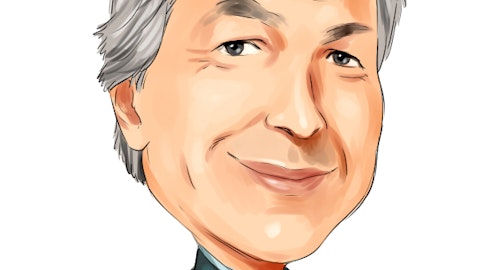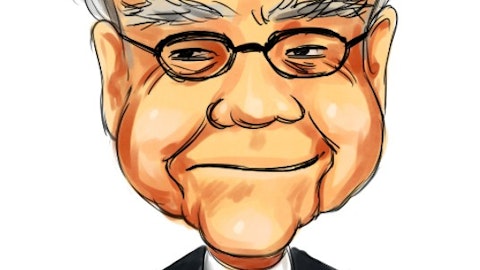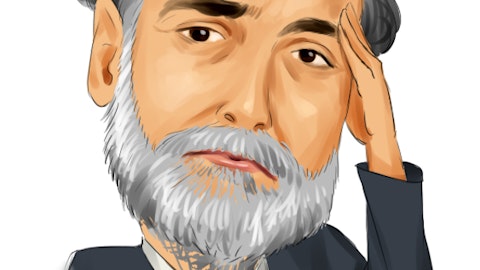
Source: The Motley Fool.
Two years ago, Warren Buffett called Bank of America Corp (NYSE:BAC) CEO Brian Moynihan to suggest a deal.
In exchange for a $5 billion investment, which would serve as a vote of confidence in the nation’s second largest lender, Berkshire Hathaway Inc. (NYSE:BRK.B) received preferred stock that paid a 6% annual dividend and warrants for 700 million shares of common stock with an exercise price of $7.14 a share, the market price at the time.

Fast-forward to today, and the warrants alone have earned Berkshire more than $5.1 billion in paper profits.
But is Buffett going to cut and run? Not by the sounds of it.
“We’ll exercise them probably the last month, which would be eight years or so from now. There’s no reason to exercise them sooner,” the Omaha-based billionaire told CNBC’s Becky Quick last week. “There would be if there were a high dividend on the common or something, so it’s conceivable. But basically we love the position of being an owner.”
It’s worth contrasting this with a similar deal that Buffett inked with Goldman Sachs Group, Inc. (NYSE:GS) in late September 2008, at the nadir of the financial crisis.
Like the Bank of America agreement, Berkshire injected $5 billion into the fabled investment bank. But unlike that deal, Berkshire received preferred stock yielding 10% and warrants to purchase $5 billion worth of common stock for $115 per share — an 8% discount to the market price at the time.
Again, fast-forward to today, and Buffett has concluded the transaction. Goldman redeemed the preferred stake for $5.5 billion in April 2011 and, earlier this year, did the same with the warrants. All told, Berkshire earned a $3.2 billion profit on the four-and-a-half-year-old investment, equating to a 64% return.
So is it good for Bank of America’s shareholders that Buffett isn’t pushing for a similar premature conclusion with the bank?
I believe that it is.
In the first case, as Moynihan pointed out during the same interview on CNBC, it gives Bank of America the opportunity to “get 8%, 9% instruments out” of the capital structure first. Remember, Buffett’s preferred stake yields a comparatively cheap 6%.
And in the second case, it delays a dilutive impact on the common shares for at least the foreseeable future. At present, Buffett’s warrants are equivalent to 6.5% of the entire company.
There will be a time when the two sides agree to end this mutually beneficial partnership. But until then, Buffett will keep collecting its preferred dividends and Bank of America can continue basking in the glow of the billionaire’s reputation.
The article Warren Buffett Won’t Abandon Bank of America originally appeared on Fool.com and is written by John Maxfield.
John Maxfield owns shares of Bank of America. The Motley Fool recommends Bank of America, Berkshire Hathaway, and Goldman Sachs and owns shares of Bank of America and Berkshire Hathaway.
Copyright © 1995 – 2013 The Motley Fool, LLC. All rights reserved. The Motley Fool has a disclosure policy.





